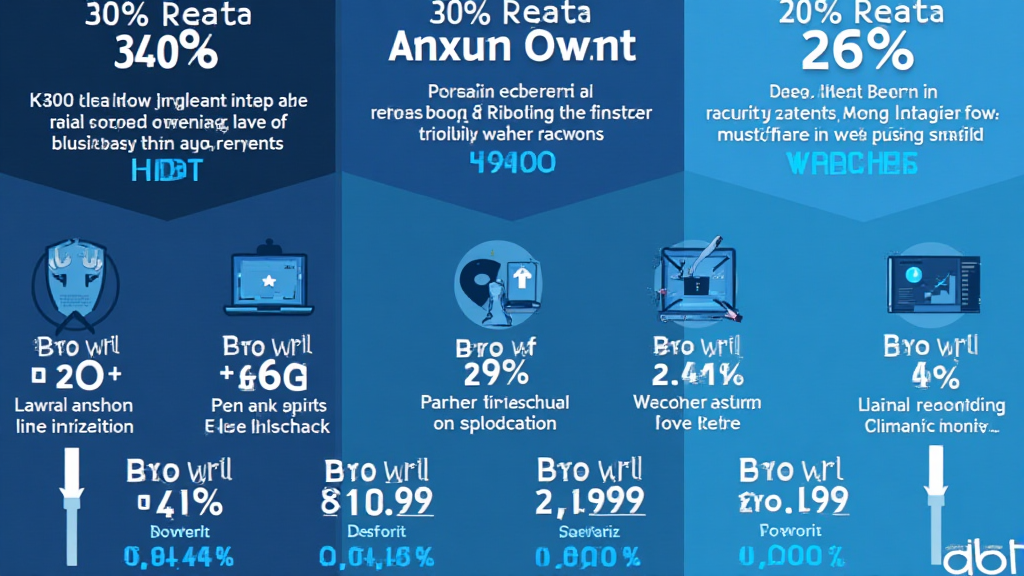Bitcoin’s Blockchain Energy Policies: Navigating Future Challenges
With over $4.1 billion lost to DeFi hacks in 2024, the crypto space is under scrutiny like never before. As Bitcoin continues to flourish, it faces increasing pressure regarding energy consumption and sustainability. In this article, we will delve into the intersection of Bitcoin, blockchain technology, and energy policies, exploring how these elements interact and what that means for the future of cryptocurrencies.
Understanding Bitcoin and Blockchain Technology
Bitcoin operates on a decentralized, peer-to-peer network known as blockchain technology. Each transaction is recorded in a secure digital ledger, creating transparency and accountability. However, the environmental impact of this mining process is a significant concern, fueling discussions around energy policies.
In Vietnam, the adoption of Bitcoin is on the rise, with a 250% increase in users recorded in the past year, indicating a growing interest in cryptocurrencies among Vietnamese citizens.

The Environmental Impact of Bitcoin Mining
- Bitcoin mining is energy-intensive, consuming as much energy as some small countries.
- Over 60% of Bitcoin mining relies on fossil fuels, contributing to greenhouse gas emissions.
- Renewable energy sources are becoming increasingly important in Bitcoin mining for sustainability.
According to data from the Cambridge Centre for Alternative Finance, Bitcoin mining alone accounted for approximately **0.4%** of the global energy consumption by 2023. The issue is not just about energy consumption; it’s also about **environmental sustainability**.
Global Energy Policies Affecting Bitcoin
As countries adopt stricter energy policies, Bitcoin miners must adapt. Policies around the world are beginning to focus on reducing carbon footprints and promoting green technology. These policies consider the nature of Bitcoin mining and its place in the global economy.
United States and Energy Policies
In the U.S., states like Texas are becoming mining hubs due to their favorable energy policies, focusing on renewable energy. The shift towards sustainable mining is gaining momentum, with companies using solar or wind energy to power their operations. Here’s the catch: while this transition is promising, it often comes with regulatory challenges.
Vietnam’s Approach to Cryptocurrency Energy Regulation
- Vietnam’s government is assessing the environmental impacts of cryptocurrency mining.
- Proposals for laws governing renewable energy sources specifically for mining operations are in discussion.
Vietnam is keenly aware of the **balancing act** required between embracing blockchain technology and ensuring sustainability. As regulations evolve, they may become a model for other nations.
Innovations in Energy Consumption for Bitcoin Mining
Advancements in technology are proving significant in the quest for more sustainable energy practices in Bitcoin mining. Energy-efficient mining rigs and innovative cooling systems are leading the way.
Utilizing By-Product Energy
- Mining operations can utilize excess energy from other industries, such as oil and gas.
- Excess hydroelectric power from dams during off-peak times is also becoming popular among miners.
These strategies highlight how operational efficiency can correlate with innovative energy policies. The goal is simple: reduce the environmental impact whilst ensuring profitability in mining operations.
Evaluating the Future of Bitcoin Energy Policies
The trajectory of Bitcoin’s energy policies will largely depend on regulatory frameworks and technological advancements. Here’s where decentralization plays a significant role—allowing Bitcoin to adapt to local laws and energy sources.
Bitcoin’s Role in the Renewable Energy Sector
- Blockchain can optimize energy distribution and consumption.
- Bitcoin mining can stimulate investment in renewable energy infrastructures.
By integrating better energy policies and practices, Bitcoin may emerge not just as a financial asset but as a significant player in the **renewable energy sector**.
Conclusion: Balancing Bitcoin’s Future with Energy Policies
As the world continues to grapple with energy consumption concerns, Bitcoin’s blockchain energy policies will be essential to its future success. Countries like Vietnam will play a pivotal role in shaping laws that govern crypto activities, ensuring both innovation and sustainability.
This balance is crucial for Bitcoin’s reputation in the global market. The road ahead is one of adaptation and evolution, and only with strategic planning can Bitcoin continue to thrive as both a financial asset and a beacon of sustainable practices.
As we move forward, cryptocurrencies must navigate the complexities posed by existing energy policies while harnessing innovations in technology to create a more sustainable future.
For continued updates on cryptocurrency and energy policies, visit cryptocoinnewstoday.





